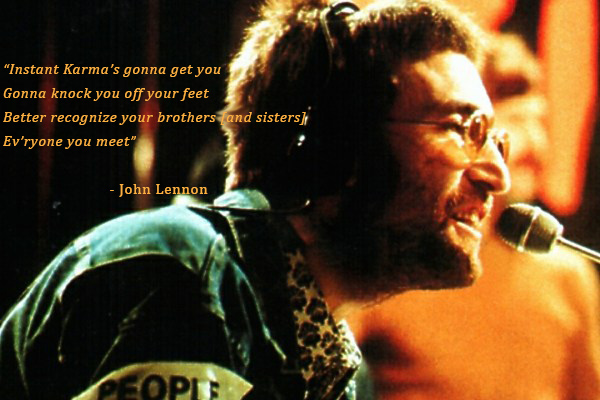When I feel tired, scared, angry, or even joyful, it is easy to forget that what I say and how I say it affects others. Everything any of us says and does has consequences. It is instant karma. Not in the Hindu or Buddhist sense that actions in current and past lives decide our fate in future existences but now, in this moment and the next.
All we have control over is what we say and do. Obviously there are multiple causes and conditions in and around meetings at work and in our communities over which we have no control. However, this should not discourage us from making conscious choices about how we behave moment to moment so that we have a positive impact on others and on the meetings we lead or participate in.
Our choices are preferably based on positive intentions like strengthening teamwork, resolving conflicts amicably, or solving problems collaboratively. Too often our intentions are unconscious or relate primarily to the topic or content of a meeting like getting our point across, convincing others we are right, or demonstrating how smart we are. (Rare is the individual who is aware of this desire or willing to admit it, even to him or herself!)
Consider the potential impact of interacting in meetings with an open mind and heart and engaging others by listening, asking questions of genuine curiosity, and sharing your point of view and how you came to it in a considerate way. How might making eye contact, smiling now and then, or speaking in a thoughtful way affect those around you? On the other hand, how might talking over others or advocating for your point of view way more than inquiring into those of others impact their behavior and emotions?
What are the consequences of any of these behaviors? It is likely that the first group of behaviors (listening, making eye contact, etc.) creates a sense of psychological safety that invites people to participate effectively and to want to understand and connect with you. The latter behaviors can easily exclude and threaten people. Such behaviors usually trigger self-protective actions that create a combative tone and provoke people to withdraw from or compete with you. Regardless of the merits of your contributions, people become less inclined to consider the potential value of your ideas.
The point of the meeting can suddenly become about who’s winning and who’s losing instead of thoughtfully talking about the topic at hand and extending an open heart, even love to people in the room. It’s instant karma. As John Lennon wrote,
“What in the world you thinking of
Laughing in the face of love
What on earth you tryin’ to do
It’s up to you, yeah you”


So true…
Thanks for reading the blog, Jacqueline!